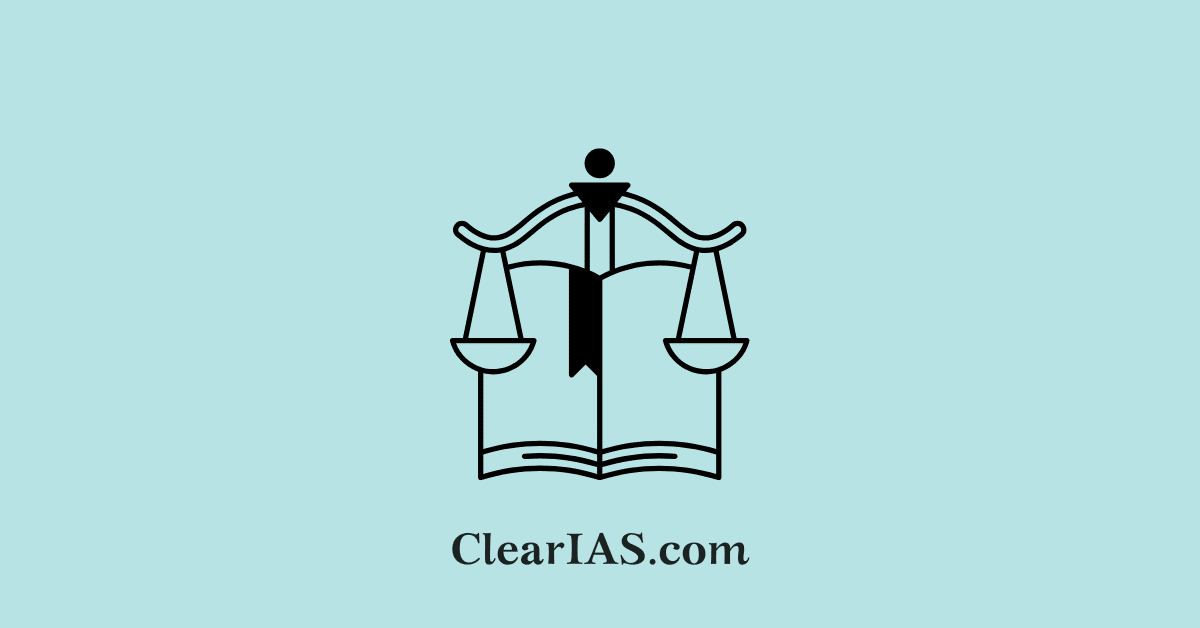
In a significant observation during a recent hearing, the Supreme Court of India stated that it is “high time to decriminalise defamation.’ Read here to learn more.
This remark has reignited debate on whether defamation between private individuals should be treated as a criminal offence at all, especially in a democracy committed to freedom of speech and expression.
The Court’s statement reflects growing judicial unease with the rampant use of criminal defamation laws to intimidate political opponents, journalists, whistleblowers, and even ordinary citizens who criticise powerful individuals or institutions.
What is meant by defamation?
It is the act of making false statements, either orally or in writing, that harm the reputation of an individual, group, company, or other entity.
Types:
- Libel: Defamation in a written, printed, or published form (e.g., newspaper articles, books, online posts).
- Slander: Defamation in a spoken or gestural form (e.g., speeches, verbal allegations).
Legal Framework in India
Defamation in India can be pursued under both civil and criminal law:
- Criminal
- Governed under Section 356 of Bharatiya Nyaya Sanhita, 2023 (replacing Section 499 of IPC).
- Punishment: Up to 2 years imprisonment, fine, or both.
- Cognizable and bailable offence.
- It can be initiated by any person claiming reputational harm.
- Civil
- Based on the law of torts (judge-made law).
- Remedy: Monetary damages or injunctions to prevent further publication.
- The burden of proof is lower (preponderance of probabilities vs beyond a reasonable doubt in criminal law).
Why Decriminalisation is Being Advocated
Effect on Free Speech
- Fear of criminal prosecution discourages citizens from criticising the government or powerful entities.
- Violates Article 19(1)(a) – freedom of speech and expression.
Misuse to Silence Dissent
- Politicians, corporations, and public figures frequently file criminal defamation cases to harass critics.
- Example: Journalists and activists face multiple cases in different jurisdictions, leading to “process as punishment.”
Disproportionate Punishment: Reputation is important, but imprisonment for a private wrong is considered excessive. Civil remedies like damages or apologies are adequate.
Judicial Backlog: Thousands of criminal cases clog magistrate courts, delaying justice for genuine disputes.
Global Practice: Many democracies (UK, USA, Sri Lanka, Ghana, Kenya) have decriminalised defamation, treating it as a civil wrong.
Judgements on Defamation
Case |
Year |
Key Takeaway |
Kunhiraman v. Manoj |
1991 |
First case using DNA evidence to resolve a paternity dispute (set a precedent for science-backed truth-finding). |
Subramanian Swamy v. Union of India |
2016 |
SC upheld criminal defamation as constitutional, saying reputation is part of Article 21 (Right to Life & Dignity). |
State of Gujarat v. High Court of Gujarat |
1998 |
Emphasised that honour and reputation are integral to human dignity and cannot be easily compensated once lost. |
Recent Observation (2025) |
2025 |
The court remarked it may be time to shift away from criminalising private defamation cases. |
Law Commission’s Recommendations
285th Law Commission Report highlighted:
- Right to reputation is a fundamental right.
- But criminal law should be used sparingly, only where defamation harms public order or state security.
- Suggested alternative remedies like apologies, retractions, or mediation.
International Perspective
- UK: Decriminalised libel and slander in 2009 (Defamation Act).
- USA: Defamation is purely civil; strong free speech protections under the First Amendment.
- Sri Lanka: Repealed criminal defamation law in 2002.
- UN Human Rights Committee: Recommends countries abolish criminal defamation as a disproportionate restriction on free expression.
Implications of Decriminalising Defamation in India
Positives
- Strengthens freedom of speech and press freedom.
- Reduces judicial pendency in magistrate courts.
- Prevents misuse of law for political vendetta.
Concerns
- May weaken deterrence against deliberate, malicious campaigns (e.g., online fake news, trolling).
- Reputation protection may be harder for ordinary citizens with fewer resources to pursue civil suits.
New Challenges in the Age of AI & Social Media
Virality and Instant Amplification
- Social media allows defamatory content to spread globally within minutes.
- Even deleted posts leave a digital footprint (screenshots, archives).
Anonymity and Fake Identities
- Troll farms, bots, and fake accounts spread defamatory material without accountability.
- Tracing originators is difficult, especially across jurisdictions.
AI-Generated Content (Deepfakes & Synthetic Media)
- Deepfakes: Hyper-realistic videos can falsely depict individuals saying or doing things, causing reputational damage.
- Generative AI: May produce biased or false summaries about individuals based on training data.
Algorithmic Amplification
- Recommendation algorithms can prioritise sensational, defamatory content over factual corrections.
Jurisdictional & Enforcement Challenges
- Such cases can involve multiple countries (cross-border publication).
- Indian courts face difficulty enforcing orders on global platforms.
Way Forward
- Decriminalise Defamation: Retain it as a civil wrong with effective remedies like damages, injunctions, and public apologies.
- Introduce Speedy Dispute Resolution: Create fast-track civil defamation courts to handle cases within fixed timelines.
- Balance Free Speech & Reputation: Provide higher penalties for malicious falsehoods, fake news, and targeted disinformation campaigns.
- Media Accountability: Strengthen press councils, ombudsman systems, and self-regulation mechanisms to maintain ethical journalism.
- Awareness & Mediation: Encourage pre-litigation mediation and out-of-court settlements to reduce unnecessary litigation.
UPSC Relevance
- GS-2 (Polity): Fundamental rights, reasonable restrictions, IT governance.
- GS-3 (Internal Security): Social media, cyber security, AI ethics.
- Essay: “Freedom of Speech in the Age of AI” or “Balancing Free Speech and Reputation in a Digital Society.”
- Ethics: Conflict between truth, public good, and individual dignity.







Leave a Reply